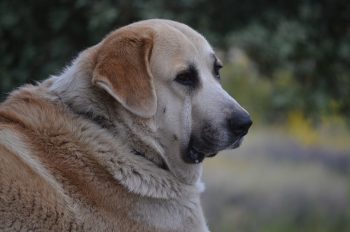Mastiffs, known for their impressive size and dignified presence, are a breed that commands respect and admiration. They are often celebrated for their loyalty, protective nature, and gentle temperament, especially around their families. However, as with any large breed, owning a Mastiff comes with a unique set of challenges that potential owners need to be aware of. This article aims to explore seven downsides to owning a Mastiff, providing a realistic view of what it means to live with such a commanding breed, while still appreciating their many admirable qualities. Understanding these challenges is crucial for prospective Mastiff owners to ensure they can provide a suitable and fulfilling home for these gentle giants, leading to a rewarding experience for both the dog and the owner.
7 Reasons Why Mastiffs Might Not Be Right For You
Substantial Size and Space Requirements: Mastiffs are one of the largest dog breeds, requiring ample space in the home and a vehicle large enough to transport them. Their size can be challenging for those with limited living space or physical strength.
Drooling: Mastiffs are known for their tendency to drool, especially after drinking or in anticipation of food. Owners need to be prepared for regular cleanups and may find this aspect of their care less appealing.
High Costs of Care: The cost of caring for a Mastiff, from feeding a large breed to veterinary expenses, can be significantly higher than for smaller breeds. Their size also impacts the cost of accessories like beds, collars, and crates.
Exercise Requirements: Despite their laid-back nature, Mastiffs require regular exercise to maintain good health and prevent obesity. Their exercise needs must be managed carefully to avoid putting strain on their joints.
Potential Health Problems: Mastiffs are prone to certain health issues such as hip dysplasia, heart conditions, and bloat. Prospective owners should be aware of these health risks and prepared for possible veterinary expenses.
Training and Socialization Needs: Due to their immense size and protective instincts, Mastiffs require consistent training and socialization from an early age to ensure they are well-behaved and safe around people and other animals.
Shorter Lifespan: Larger dog breeds like Mastiffs typically have a shorter lifespan compared to smaller breeds, averaging around 6-10 years. This can be a significant emotional consideration for potential owners.
Owning a Mastiff can be an incredibly rewarding experience. They bring a unique combination of loyalty, affection, and a majestic presence into a home. While there are considerable challenges in caring for a Mastiff, understanding and preparing for these aspects can lead to a deeply fulfilling companionship. Mastiffs, with their protective nature and gentle disposition, can be wonderful, loving pets in the right environment, offering their families a unique and unforgettable experience.
On The Other Hand…
5 Positive Qualities About Mastiffs
Loyal and Protective: Mastiffs are renowned for their loyalty and protective nature. They are deeply devoted to their families, often forming strong bonds and acting as natural guardians, providing a sense of security and safety for their owners.
Gentle and Good-Natured: Despite their imposing size, Mastiffs are known for their gentle and calm demeanor, especially around their family members. They are often affectionate and patient, making them excellent companions, particularly in households with children.
Low Exercise Needs: Contrary to their large size, Mastiffs have relatively low exercise requirements. They are content with moderate daily walks and some playtime, which makes them suitable for various living situations and owner lifestyles.
Quiet and Dignified: Mastiffs tend to be quiet dogs, rarely barking without reason. Their dignified and calm presence makes them well-suited for households that prefer a less vocal pet.
Intelligent and Trainable: Mastiffs are intelligent dogs and, with the right approach, can be trained effectively. They respond well to calm, consistent training methods and can learn a variety of commands and behaviors.
Mastiffs are a magnificent breed, combining a protective and loyal nature with a gentle and affectionate temperament. Their low exercise needs, dignified demeanor, and trainability make them a unique and rewarding companion for the right owner. With their impressive presence and loving personality, Mastiffs hold a special place in the hearts of those who appreciate the qualities of this noble breed.
The post Are Mastiffs The Worst Dog? – Food for Thought appeared first on iHeartDogs.com.

